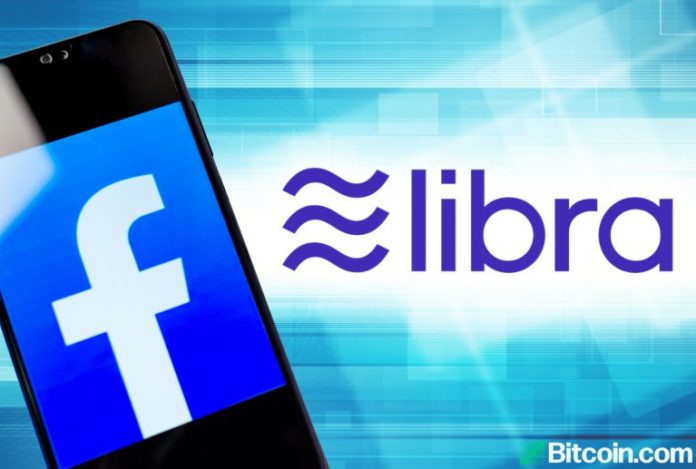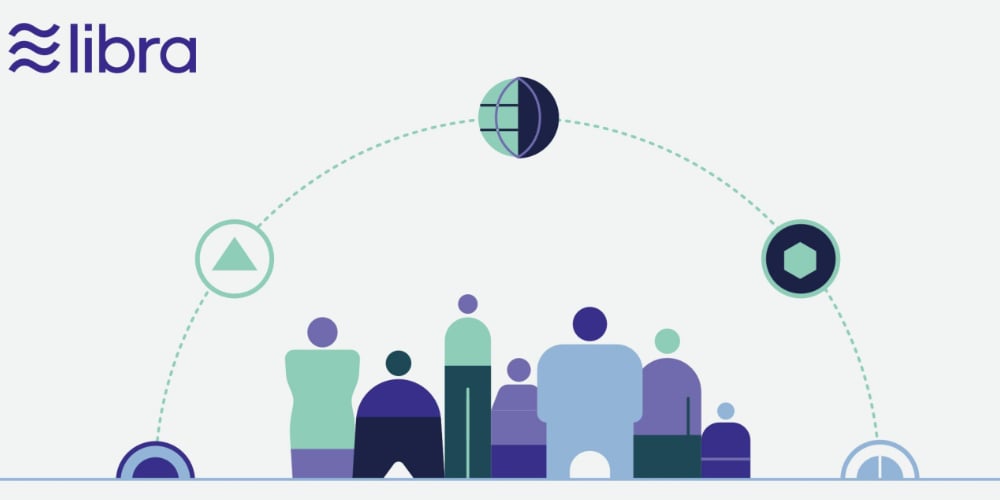
Facebook’s Libra cryptocurrency project has undergone major changes. A number of key areas have been redesigned, including the payment system, the Libra cryptocurrency, and the addition of new single-currency stablecoins. The changes largely aim to comply with regulatory requirements.
Also read: Bitcoin Revolution: Wanna Earn $1,000 a Day? Government Warns About This Scam
Libra Project Redesigned, New Whitepaper
The Libra Association has published an updated whitepaper for the Libra project, originally announced by social media giant Facebook in June last year. Michael Engle, a developer at the Libra Association, explained some key changes in a blog post on Thursday.
Since the project was announced, “we’ve worked closely with regulators, central bankers, elected officials, and various stakeholders to shape an innovative approach to using blockchain technology to support a regulated, licensed payment system,” he shared, adding:
We have made changes to our initial approach, many of which depart from the approaches taken by other blockchain projects.

The new Libra whitepaper details that “Four key changes have been made to address regulatory concerns that deserve specific attention.”
The first is “Offering single-currency stablecoins in addition to the multi-currency coin.” The second concerns “Enhancing the safety of the Libra payment system with a robust compliance framework.” The other two areas are “Forgoing the future transition to a permissionless system while maintaining its key economic properties” and “Building strong protections into the design of the Libra Reserve.” Full details of the changes to the Libra project are outlined in the new whitepaper.
Single and Multi-Currency Stablecoins
Many regulators are worried that the planned Libra cryptocurrency could interfere with their countries’ national currencies and monetary policies if it achieves enough scale, such as being used by Facebook’s 2.5 billion users. To alleviate this concern, Engle explained:
We are augmenting the Libra network by including single-currency stablecoins (e.g., USD, EUR, GBP, etc.).
Instead of using existing stablecoins, such as tether (USDT), Libra’s single-country stablecoins are self-issued, and the Libra coin (LBR) will be separate from them. Initially, Libra’s stablecoins will be the currencies that make up the proposed LBR basket, such as the Librausd (USD), Libraeur (EUR), Libragbp (GBP), and Librasgd (SGD). “We hope to work with regulators, central banks, and financial institutions around the world to expand over time the number of single-currency stablecoins available on the Libra network,” the Libra Association wrote.
The new plan “will allow people and businesses in the regions whose local currencies have single-currency stablecoins on the Libra network to directly access a stablecoin in their currency,” the whitepaper adds. “Each single-currency stablecoin will be fully backed by the Reserve, which will consist of cash or cash equivalents and very short-term government securities denominated in that currency.”

The New Libra Coin
The design of the Libra coin has also been changed. The new whitepaper explains that the new Libra coin “will not be a separate digital asset from the single-currency stablecoins,” adding:
Under this change, LBR will simply be a digital composite of some of the single-currency stablecoins available on the Libra network.
“It will be defined in terms of fixed nominal weights, such as the Special Drawing Rights (SDR) maintained by the International Money Fund (IMF),” the whitepaper notes, adding that this approach provides “a clear path for seamlessly integrating central bank digital currencies (CBDCs) as they become available.” Moreover, the Reserve “will hold assets with very short-term maturity, low credit risk, and high liquidity. It will also maintain a capital buffer.”
Licenses and New Launch Date
The Libra Association also announced on Thursday that it has initiated the formal payment system licensing process with the Swiss Financial Market Supervisory Authority (FINMA), Switzerland’s financial regulator. According to reports, the association also plans to register with the U.S. Treasury’s Financial Crimes Enforcement Network (FinCEN) as a money service business.
In building the Libra system, the association has incorporated feedback from regulators. Amid regulatory scrutiny, some of Libra supporters have left the project, including Visa, Mastercard, Paypal, Vodafone, and Shopify. Some supporters now also back a competing project, Celo. This week, the G20 discussed setting rules for the regulation of stablecoins like Libra.
The planned launch date for the Libra project was originally set for the end of June. However, Dante Disparte, Libra Association’s head of policy and communications, told the media that now the aim is to launch the project between mid-November and the end of the year.
What do you think about Libra’s new plans? Let us know in the comments section below.
The post Facebook Libra Redesigned: New System and Cryptocurrency to Comply With Regulations appeared first on Bitcoin News.

Bitcoin.com is author of this content, TheBitcoinNews.com is is not responsible for the content of external sites.
Our Social Networks: Facebook Instagram Pinterest Reddit Telegram Twitter Youtube










